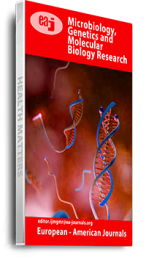There are over 25 species of egg plants in Nigeria including those domesticated for their leaves, fruits or both; eaten as vegetables or used in traditional medicine. However, S. aethiopicum and S. macrocarpon are the most cultivated and most utilized in Nigeria. Antimicrobial activities and phytochemical screening of S. aethiopicum and S. macrocarpon were studied. The antimicrobial activities of ethanolic extract of Garden Eggs (Solanum aethiopicum) leaves and fruits against test organisms showed higher zones of inhibition than aqueous extracts. The qualitative analysis of the phytochemicals present in S. aethiopicum showed higher content of saponin 46.10 +0.61 b than glycoside 0.05 +0.00 d on the fruit extracts while on the leaves extracts tanin 13.73 +0.21 c was more present than phenol 0.21 +0.01 a while the qualitative analysis of the phytochemicals present in S. macrocarpon showed that Alkaloid 20.22c +0.01 was more active than glycoside 0.05d +0.00 on the fruit extracts while on the leaves extracts saponin 18.73c +0.21 was more present than phenol 0.21a +0.01. In conclusion, the experimental results have revealed that the two species of African eggplant are nutritionally and therapeutically valuable and can be developed as functional foods having both nutritional and medicinal benefits to consumers.
Keywords: Antimicrobial, Antioxidant, Extracts, Phytochemical Composition of Solanum macrocarpon (Garden Eggs) and Solanum aethiopicum (Ethopian Garden Egg)

